Vanities: The Musical – An interview with Lauren Samuels, Lizzy Connolly and Ashleigh Gray
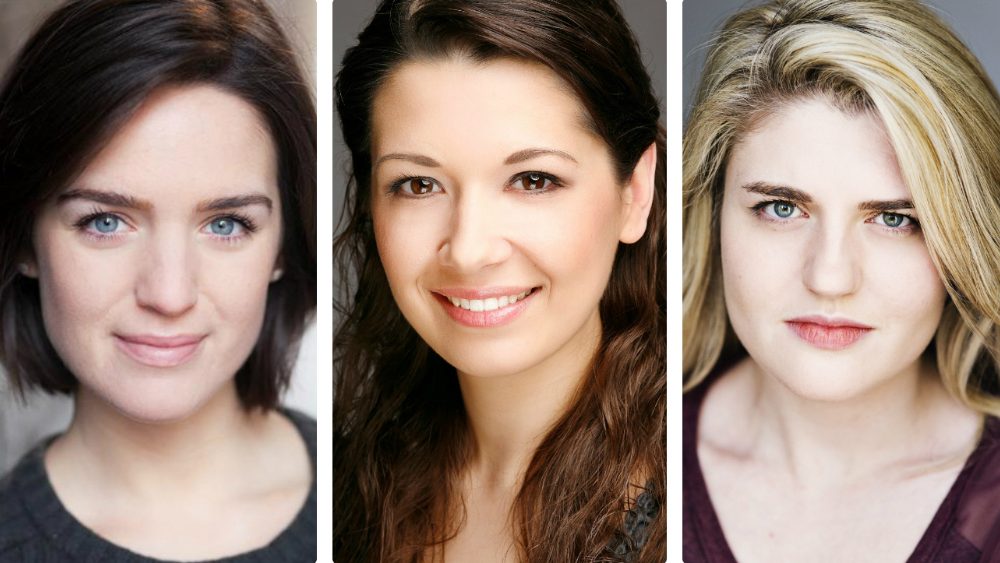
This autumn, Lauren Samuels (Bend It Like Beckham, BBC’s Over the Rainbow, Grease), Ashleigh Gray (Wicked, Cool Rider) and Lizzy Connolly (Dirty Rotten Scoundrels, Xanadu) star in the European debut of Vanities, a classic American tale. Vanities is a hilarious and heartfelt story about three best friends growing up in Dallas at a time when image and style were more important than brains and ambition. Through a rich original score that blends girl group harmonies of the 60s and 70s with contemporary musical theatre, Vanities explores how these women’s warped view of the world shaped them for better and worse.
What initially drew you to these roles?
Lauren Samuel: I loved the idea of doing a female strong three-hander musical in such an intimate fantastic venue.
Lizzy Connolly: Joanne is thoughtless not thoughtful. She is that friend that means well but always seems to offend, leaving you feeling a bit worse about yourself than you were before! She loves strongly and is very loyal and moral. She is very religious and will appear stupid because she has no wish to learn or understand. She’s an interesting combination of a person.
Ashleigh Gray: When I first researched this piece, the thing that hit me first was the score. The music is brilliant. Not only that, the script is wonderful. It has a real substance but is also incredibly funny, and the journey that Kathy takes is going to be a challenge that I’m looking forward to getting stuck in to.
What steps did you take to get into your characters? Do you have any shared experiences or personality traits?
LS: I certainly related to the girls’ need for popularity! When I was at school I just wanted to be liked by everyone, and in this industry don’t we all require that recognition to some extent?
LC: I analysed her and intellectualised her. I tried different mannerisms that aren’t my own and learnt the accent and vocal quality. I often pick people on TV or people who remind me of the character and just watch them.
AG: It’s quite bizarre actually; I think all three of us have been cast rather cleverly. We are all very similar to our characters, and we all have traits of the girls within us. Kathy is incredibly organised, a bit of a control freak, loves making a list… that’s me all over!
How have you gone about creating a believable friendship between the characters? Did you know each other beforehand or spend time together?
LS: We all found it pretty easy to click immediately. I couldn’t imagine doing this show with anyone else. With Ashleigh and Lizzy I feel so comfortable and happy to try out new things in the rehearsal room without that fear of being judged, or looking stupid. We’re already organising many post rehearsal slumber parties just like the girls in the show!
LC: I love the girls. They are funny and relaxed, but so hardworking too. I didn’t know them at all before we began, but it’s wonderful to be working with them.
AG: I’d seen them both in other shows and socially but had never worked with either of them. We’ve had a couple of sessions all together now and I’m really looking forward to getting started in developing the show and the friendships.
How accurate do you feel the title, Vanities, is to the musical as a whole?
LS: I’d struggle to find another name for it! The girls spend so much of their time looking in mirrors and planning how to make other people like them, they forget to live! They almost become personality-less and it is only when they realise that, they finally shift their views on life.
LC: Vanities is very accurate. It’s a play about three imperfect women who are often not very nice but who are just very human. It’s about what’s important to them, which as teens is their looks. Self-obsession, selfie culture and the way people perceive our lives via social media are ways our vanities affect our lives today. This is as true today as it was in the 60s.
AG: A lot of the events that happen to these characters throughout the piece are as a result of their own vanity and their reactions to someone else’s opinion. People deal with judgement and their own vanity in different ways – this play is a clear demonstration of it.
What do you think about the different life paths the girls take after college?
LS: I think their paths reflect their personalities. For my character Mary, she’s desperate to leave Texas, see the world and be nothing like her attention seeking mother. When actually, she almost ends up being exactly that.
LC: You’re out on a limb after college. There is no right way to do life – no matter what our parents, the media or our peers tell us. Everyone has an opinion on our lives and the paths we take. The girls make different choices and different mistakes, each one following what they think is right.
AG: Each to their own, I always say. Here are three girls with many things in common but all with very different outcomes and expectations of life. That’s what makes these characters so truthful and believable.
How was it working with acclaimed director and choreographer Racky Plews?
LS: Racky is wonderful. As is our amazing MD Tamara. It’s great to have such a strong female team behind us for this show. Racky is able to allow us to feel free and creative as actors, while also holding the reins and making us feel completely safe.
Lizzy: She is so clever and has an amazing vision for the show. She has a very creative, open process.
AG: Racky is brilliant and although we’re only just at the beginning of rehearsals, I know she’s going to be a wonderful cog in this team! I’ve seen a couple of her previous productions and have great admiration for her work, so I think it’s going to be a great process and lots of fun too.
What was the most challenging aspect of the production for each of you, and why?
LS: The most challenging aspect of the show for us all I’d say is the stamina. As there is only three of us, we sing every number and are in every scene. We even change the scenery and our costumes on stage!
LC: I think for me, it’s the harmonies. We have such a short rehearsal time to get these songs sung into my voice, so that when on stage I can forget I’m in a harmony and just sing the story of the song.
AG: For me in particular, it’s going to be honouring the transition of Kathy and where she’s ‘at’ across the three different decades. It’s very rare that you get to play a character across such a time span.
Do you feel the musical’s ending to the play is more or less effective than the original?
LS: The original leaves a lot unresolved. Without giving away our ending, I’m glad the audience will be left feeling satisfied that they’ve been able to follow each character’s full journey.
LC: I think it’s more satisfying. It gives the girls a chance to redeem themselves in the musical. The play finishes on an odd note (although I do actually really love the unresolved mess of it all).
AG: I think it’s nice to have it resolved, rather than an open ending. As an audience member, we’re hoping to take you along with us for the ride and if the ending was as it is in the play, I think you’d feel short changed. We want these three to make it. And it’s nice to see the lessons that have been learned along the way, instead of being left with a feeling of “whatever happened to those women”.
Vanities has been described as “all-American”, do you think it will be received differently in the UK?
LS: I think that’s what people will love about it here! The “all-americanisms” are so funny and often adorable to us as a British audience.
LC: As UK high schoolers, we love the idea of American high school, like in Mean Girls etc. We are all mesmerised by the mystery of sororities and their secrets. We all wanted to live the Sex and the City lifestyle as adults and sit in Central Perk with the Friends crew!
AG: At the heart of Vanities are recognisable, relatable themes. The play just happens to be set in America and is laden with American culture references, but it’s not exclusive in its telling of what is essentially a universal story; that of friendship and sisterhood.
As the play has a distinctly 60s and 70s feel to it, how well do you feel it has aged over the years? Is there an overall message which will speak to all generations?
LS: I think the overall message is timeless. I hope lots of people will relate in different ways to all the characters and their varying stories. We’ve all spent time in education, and we’ve all had close knit groups of friends who at some point we couldn’t imagine living without, I think we’ve all had dreams as children of being one thing, and realising later in life you don’t want to do that.
LC: Vanity is very alive in our culture and has been enhanced since the 70s – especially with social media today. It’s a play about women and relationships and the things we go through together. My female friends are one of the most, if not the most, important bonds in my life and this is a play about these relationships. That’s never irrelevant. This show will speak to my mum as well as my 14-year-old cousin.
AG: I think it’s a really great message in particular for younger girls, to be able to lose all your inhibitions and vanity and be happy with the person you are. At the end of the day, we’re all individuals. We’re all the best at being us. The sooner we learn that, the happier our lives will be.
Isabelle Milton
Vanities is at Trafalgar Studio from 1st September until 1st October 2016. Book your tickets here.

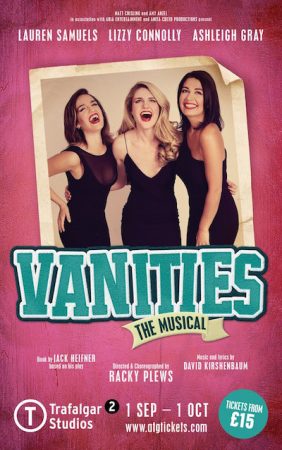
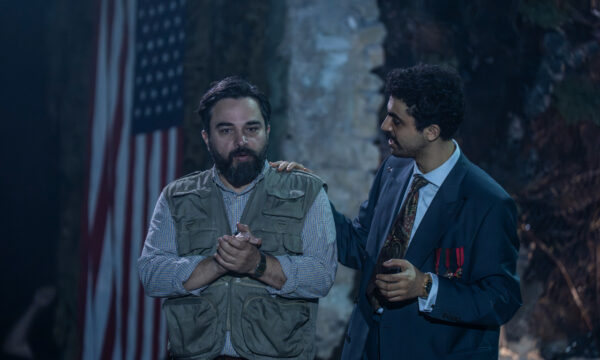
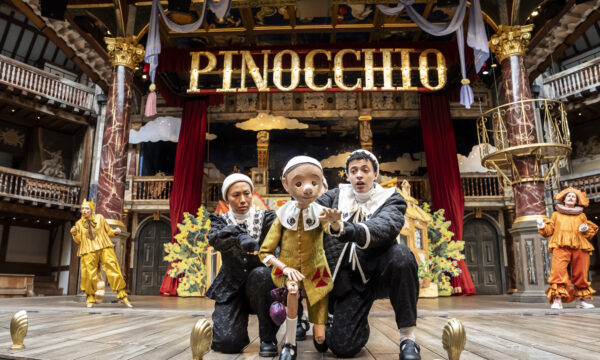
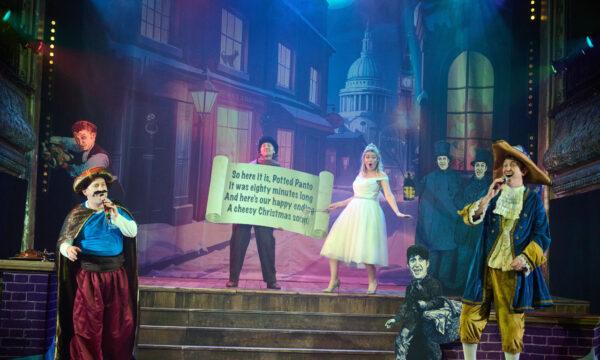

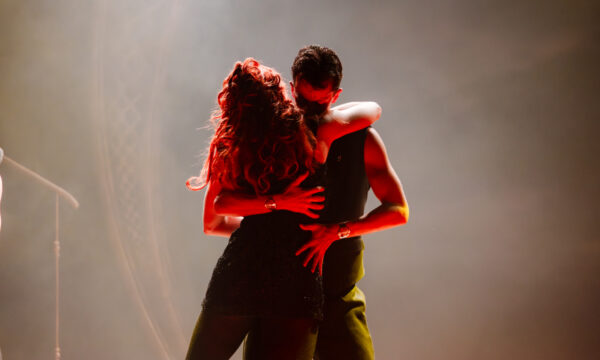
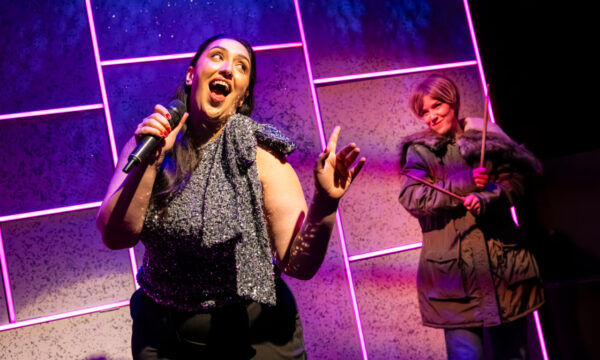
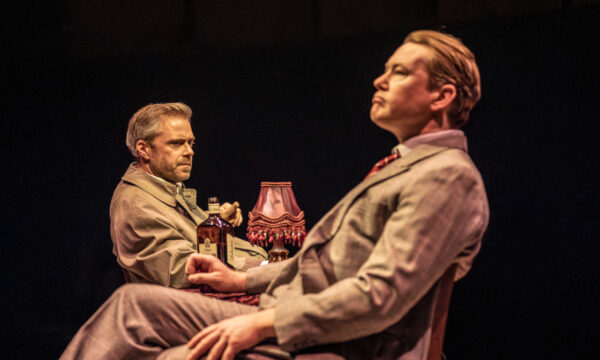
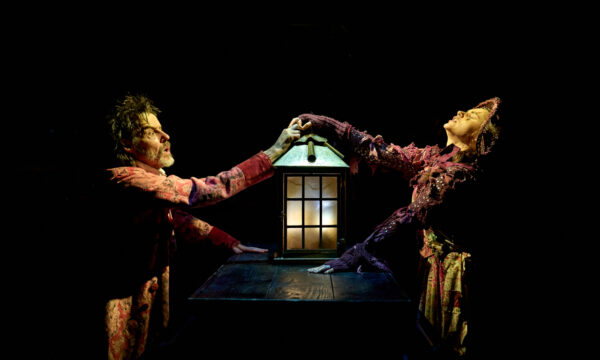
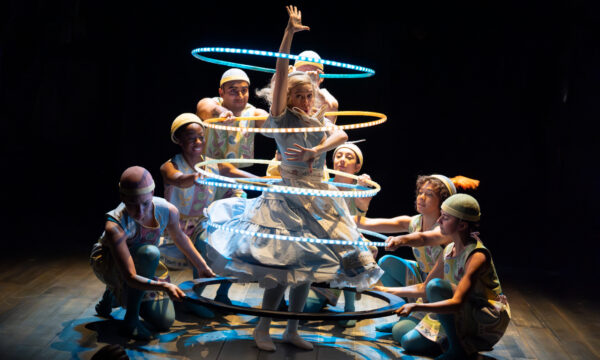















Facebook
Twitter
Instagram
YouTube
RSS